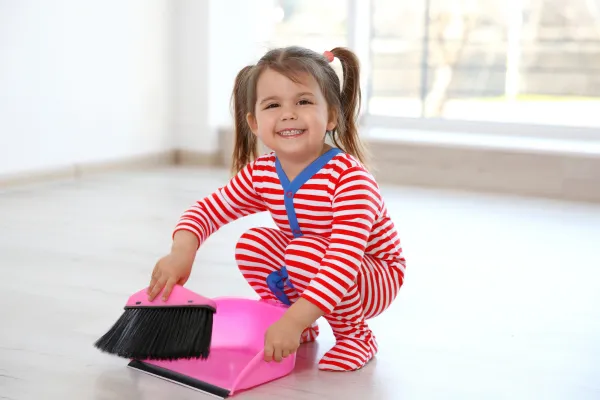
The Heart of Montessori: Why Practical Life Activities Matter

Montessori education is renowned for its unique approach to early childhood development, and one of the most essential components of a Montessori classroom is the Practical Life area. The Practical Life area is not just a section filled with ordinary household tasks—it is a cornerstone of the Montessori method that lays the foundation for a child's growth across multiple domains. But why exactly is the Practical Life area so vital? Let's explore the reasons why this part of the classroom is indispensable for fostering independence, concentration, coordination, and responsibility in young learners.
Fostering Independence and Self-Confidence
One of the primary goals of the Montessori method is to help children become independent. The Practical Life area is meticulously designed with activities that children encounter in everyday life, such as pouring water, buttoning a shirt, or sweeping the floor. By practicing these activities, children learn to care for themselves and their environment.
Completing these tasks independently not only builds practical skills but also boosts self-esteem and confidence. When children master a task like tying their own shoes or setting a table, they experience a sense of accomplishment. This newfound confidence encourages them to take on more challenging tasks, fostering a positive cycle of learning and independence.
Developing Fine and Gross Motor Skills
Practical Life activities are carefully chosen to enhance both fine and gross motor skills. For example, transferring beans with a spoon or using tweezers to pick up small objects helps refine fine motor skills by promoting the development of hand-eye coordination and control over small muscle movements. On the other hand, activities like carrying a tray or sweeping the floor help develop gross motor skills, enhancing a child's overall physical coordination and strength.

These motor skills are not just crucial for physical development; they also prepare children for future academic pursuits. For example, the fine motor control developed in Practical Life exercises directly supports writing skills, as children learn to hold and control a pencil with ease.
Enhancing Concentration and Focus
Many Practical Life activities are repetitive and require sustained attention, which helps children develop concentration and focus. For instance, an activity like polishing a mirror requires a child to concentrate on the task at hand for an extended period, providing a valuable opportunity to practice mindfulness and attentiveness.
This ability to concentrate deeply is essential for academic learning and problem-solving. When children are given the time and space to focus on a task without interruptions, they develop a habit of sustained attention that will benefit them throughout their educational journey and beyond.
Teaching Responsibility and Care for the Environment
In the Practical Life area, children are introduced to activities that involve caring for themselves, others, and their environment. Tasks such as watering plants, feeding classroom pets, or cleaning up spills instill a sense of responsibility and respect for the world around them.
These activities teach children that they are part of a community and that their actions have consequences. By participating in the care of their classroom environment, children learn the importance of stewardship and develop an intrinsic motivation to maintain order and cleanliness.
Building a Foundation for Academic Learning
While Practical Life activities may seem simple, they provide a critical foundation for more complex academic skills. Activities that involve sorting, sequencing, and categorizing prepare children for mathematical concepts. For example, when children practice pouring water without spilling, they are also learning about estimation, volume, and spatial awareness.
Similarly, tasks that require following a sequence of steps, such as making a sandwich, build logical thinking and problem-solving skills, which are essential for reading comprehension and scientific inquiry. By engaging in Practical Life activities, children are indirectly preparing for future academic success.
Encouraging Social Skills and Cooperation
Many Practical Life activities encourage social interaction and cooperation among children. For example, preparing snacks or setting the table often involves working with peers. These collaborative activities teach children how to communicate, share, and work as part of a team, developing essential social skills that are crucial for building healthy relationships.
Through these activities, children learn to respect one another's space and work, wait their turn, and offer help when needed. The Practical Life area thus becomes a microcosm of the larger world, where children practice the social norms and behaviors that will serve them well in their communities.
Promoting Emotional Regulation and Patience
Practical Life activities often require patience and emotional regulation, especially when tasks are challenging or don't go as planned. Children learn to handle frustration and persevere through difficulties, building resilience and emotional strength.
For example, if a child spills water while pouring, they learn to manage their frustration, clean up the spill, and try again. These experiences teach children that mistakes are a natural part of learning and that perseverance leads to improvement. Over time, children develop a growth mindset, understanding that effort and practice are key to mastering new skills.

Final Thoughts
The Practical Life area in a Montessori classroom is far more than a place for children to practice everyday tasks—it is a dynamic learning environment that nurtures independence, motor skills, concentration, social skills, and emotional regulation. By engaging in Practical Life activities, children build a strong foundation for future academic learning and develop essential life skills that will serve them throughout their lives.
By understanding the significance of the Practical Life area, parents and educators can appreciate the depth of learning that occurs in these seemingly simple activities. In a Montessori classroom, every action is purposeful, contributing to the holistic development of the child and preparing them to navigate the world with confidence and competence.

